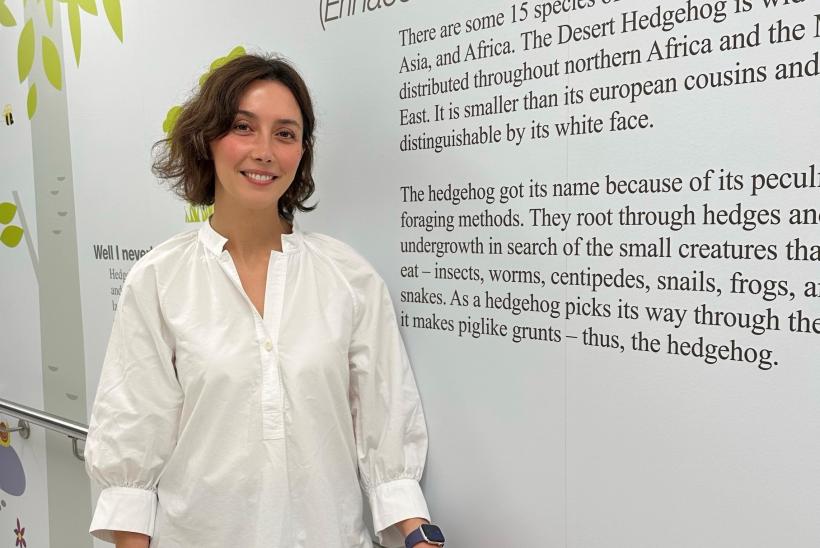Reflections on Wellbeing, Connection, and Care at GOSH for World Mental Health Day
Dr Yasmine Olabi, Specialist Paediatric Clinical Psychologist
In support of World Mental Health Day 2025, the Wellbeing Team at Great Ormond Street Hospital for Children (GOSH) are shining a light on wellbeing through their campaign, “It’s Okay Not to Be Okay.”
Aligned with this year’s global theme, mental health support in times of crisis and uncertainty, the campaign acknowledges the complexity and overwhelm in our contexts. It invites us to create space to reflect, connect, and support one another with openness, compassion, and the understanding that it’s okay to ask for help.
Reflections from a Paediatric Clinical Psychologist
Working closely with children, families, and staff at GOSH, I’ve grown to appreciate how essential it is to attend to the emotional, spiritual, and practical aspects of wellbeing.
Every day at GOSH, we care for children with some of the most complex and rare conditions, from across the UK and internationally. These children and their families face significant challenges. They may also navigate major shifts in daily life. Some are unable to return to places and activities they once loved.
Some pressures may be deeply personal, others shared. They may be visible, or quietly building in the background. For children and their families navigating childhood illness and treatment, within layers of other difficulties, this can feel overwhelming.
It’s no surprise that psychological distress is common. Witnessing, and being alongside people, is something that sits at the heart of our work.
I’m often struck by how the hospital becomes a kind of home for many, and how staff wrap around children and families in ways that reflect deep care and connection.
I'm moved by the ways that people share parts of themselves: their languages, foods, joys, struggles, faiths, and strengths. These become points of connection that help people feel closer to home in a more visceral way, and more connected to a community that sees them.
Connection can help everyone - children, families, and staff - feel safe, supported, and understood. It builds trust and can ease the emotional impact of stressful or distressing experiences in hospital.
As psychologists, we draw from different frameworks to understand distress. No single model fits everyone, and as a service, we aim to work in a way that is flexible, collaborative, and keeps each child and family at the centre.
One approach we use is narrative therapy. Narrative therapy sees psychological distress not as a disorder, but as a meaningful part of a person’s lived story, one that can be explored, understood, and even re-authored in ways that reconnect people to their values, strengths, and identities.
We live through stories. Stories we tell ourselves, stories others tell about us, and stories shaped by culture, trauma, illness, or power. When distress appears, it’s often tied to problem-saturated narratives that leave little room for hope, agency, or alternative versions of who we are.
Narrative therapy understands distress as a kind of disconnection. Therapeutically, we support people to reconnect and reclaim narratives of resilience, care, and strength. This often begins by sharing how we’re feeling with someone we trust.
Psychological Support at GOSH
The Paediatric Psychology team at GOSH is part of the hospital-wide Psychological and Mental Health Services (PAMHS), supporting staff, as well as children and young people with complex medical conditions, both in hospital and as outpatients.
We work closely within multidisciplinary teams (MDTs) across medical, surgical, nursing, and allied health services. Our support includes psychological assessment, formulation, and a range of evidence-based therapies including narrative therapy, CBT, ACT, and systemic approaches.
If you or someone you know would like to discuss psychological support, please speak to a member of the team. We’re here to help.


